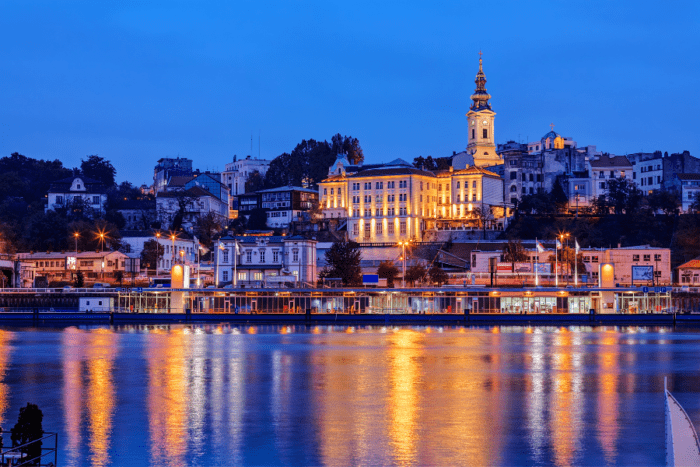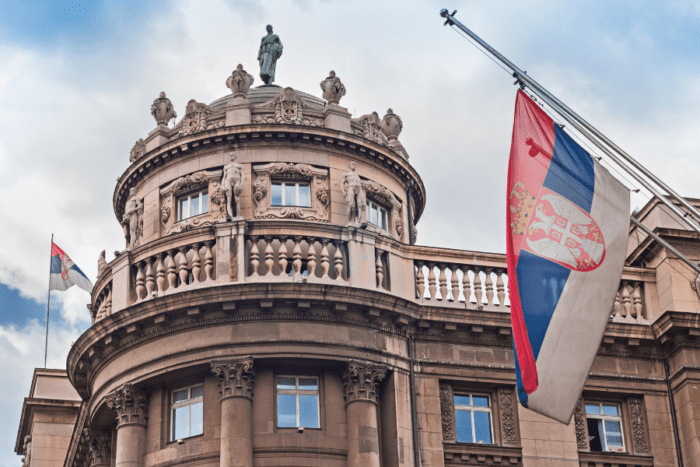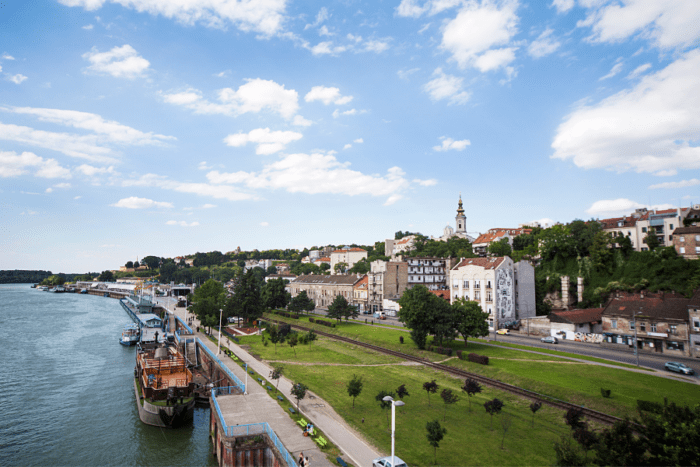How to Get Residency in Serbia for Tax Purposes in 2025
January 8, 2025
In this article, we’ll look in-depth into how to get residency in Serbia for tax purposes, its benefits, and more. We’ll also discuss the concepts of tax residency and in which circumstances being tax resident in Serbia can come in handy.
Generally, people move away from European countries to establish their tax residency since Europe is pretty notorious for high taxes. However, that’s not always the case.
Europe still has its hidden gems where you can live, work, or do business, all while paying fewer taxes than you’d pay elsewhere in the Western side of the world.
Wondering how’s that possible? At Nomad Capitalist, we’ve helped many of our clients live high-standard lives in European countries with minimal taxes. All you have to do is reach out, and ask, we’d love to do the same for you too.

Serbia – Country Review
The Republic of Serbia is a landlocked country in the West Central Balkans with a population of 8,648,676 people. Belgrade is the capital of Serbia.
Hungary, Romania, Bulgaria, North Macedonia, Kosovo, Croatia, Bosnia and Herzegovina, and Montenegro border the country.
Serbia is a relatively young country that gained independence in 2006. It is also an EU candidate state.
For most of the 20th century, the country was an integral part of Yugoslavia – which, back then, comprised Serbia and most of its neighboring countries.
Serbia has seen its fair share of turmoil and instability, especially in the 1990s following the breakup of Yugoslavia and the collapse of Communism.
However, for over a decade now, the country has been learning to move in the right direction. You can observe this positive shift in its economy, tourism, and openness. In 2019 the country was ranked 44 in the World Bank’s Ease Of Doing Business index, two spots ahead of Belgium.
Serbian Economy
The Serbian economy is primarily service-based. Roughly two-thirds of the GDP derives from the services sector. Trade is also a significant revenue contributor for Serbia. The most vital economic sectors are energy, manufacturing, and agriculture.Belgrade is the economic hub of the country. It’s also preferred by local and foreign investors and entrepreneurs to plant a business flag or make an investment otherwise.
Tax Residency vs. Tax Non-Residency?
This article discusses establishing tax residency in Serbia, but if you’re unfamiliar with tax residency, you may not get the entire picture.
So let’s first briefly discuss the concept of tax residency and its opposite so that you clearly understand when you should choose this route and why.
- Tax Residency: Your tax residence is any jurisdiction where you are legally required to pay taxes. Usually, a tax resident pays taxes on their worldwide income.
- Tax Non-Residency: Tax Non-Residency is the entire opposite of tax residency. You are exempt from paying certain (or entire) taxes of a jurisdiction as a tax non-resident.
In theory, tax non-residency may sound like the better option, but the sad (or not) reality is that you’ve got to pay tax somewhere. So it’s better to be a tax resident of a tax-free or tax-friendly country rather than one that doesn’t let you off the hook even if you stop living there (looking at you, United States).
It’s essential to note here that each jurisdiction sets its own tax residency criteria. Moreover, the number of taxes levied, the privileges of a tax resident, and the tax exemptions for a tax non-resident also depend on the domestic tax laws of each jurisdiction.
One of the most notable measures of tax residency is the physical presence test. Many countries treat you as a tax resident if you spend over 183 days per year there.
However, that’s not the only criterion. Residence, business, or other ties to the country may also qualify you to pay its taxes.
Also, acquiring a second residence or citizenship of a country doesn’t automatically qualify you for its tax residency. Simply put, a person can be a citizen or resident of a country yet not pay (some or all) taxes there.
Knowing when and where to establish a tax residence is an integral part of holistic residence planning.
Tax Residency in Serbia
As mentioned earlier, each country sets its own tax residence criteria. The following will qualify you as a Serbian tax resident:
- Living in Serbia for at least 183 days per year (consecutively or otherwise)
- Owning a residence (personal base) in Serbia
- Owning a business (economic base) in Serbia
Serbian tax residents are taxed on their worldwide income, while tax non-residents are taxed only on their Serbian-sourced income.

How to Establish Tax Residency in Serbia?
Serbia grants a temporary residence permit for several reasons, including work, family reunification, investment, study purposes, etc.
Investors and entrepreneurs looking to establish residency in Serbia may find the following routes to be of interest to them:
- Residence by Company Formation
- Residence by Real Estate Investment
Both options are pretty straightforward. However, setting up a company is a far quicker way to get a temporary residence permit in Serbia.
Let’s explore both these options in detail.
Residence by Company Formation
Setting up a company is an excellent way to acquire a Serbian residence permit as a foreign citizen. There is no minimum investment required for this route. You can set up an LLC with the minimum required shared capital of €1.
There are no physical presence requirements to set up or run the company. However, you must visit the Immigration office to sign and receive the residence documents.
Serbia has a streamlined company incorporation process, so you can expect to register your Serbian company in 5-7 days.
The Immigration Office would grant you a temporary residence permit only if your company was found to be real and operational.
You also don’t need to fret about opening a bank account in Serbia since, as with company formation, opening a bank account in Serbia is pretty streamlined and quick.
Serbia is currently one of the most flexible European countries regarding the opening of bank accounts, since it is not a part of CRS (yet).
After six months of getting your temporary residence permit, you can apply for permit renewal. The temporary residence permit may be renewed for 1-3 years.
You can qualify for a permanent residence permit after five years if you live in Serbia continuously for at least two and a half years.
Residence by Real Estate Investment
Similar to the company formation process, there is no minimum investment amount for the real estate route to acquire a temporary residence.
Residence applications based on real estate are treated case-by-case, and it’s up to the government to accept or reject your application.
You can only purchase Serbian real estate if your native country has a reciprocal real estate agreement with Serbia.
Most Western nations, like the US, Australia, Canada, etc., have such agreements with Serbia though it should be noted that foreign nationals are generally not allowed to own land in Serbia. The only exception is for EU nationals, but even then the purchase of land is conditional.
The company formation route is faster than real estate ownership since the latter requires you to stay in Belgrade for 1-2 months after filing for residence. The process lasts 35 days, and extra time is needed to locate the property.
A temporary residence permit acquired through the real estate route can be renewed annually.
Moreover, the government checks that you spend at least half of the approved residency period in Serbia. For example, if your approved temporary residence permit is valid for a year, you must spend at least six months in Serbia.
To be granted temporary residence in Serbia, you must show proof of sufficient funds to support yourself and your family members (if applicable). You must also have health insurance.
Establishing Permanent Residence in Serbia
You can qualify for a permanent residence permit in Serbia after five years of approved temporary residency. You can include your spouse and children under 18 in your permanent residency application. After five years of acquiring permanent residence status, you can apply to become a Serbian citizen.
Benefits of Establishing Tax Residency in Serbia
Favorable Taxes
Serbia’s tax rates are among the lowest in Europe, and the country has double tax avoidance agreements with over 60 countries. So, foreigners may qualify to make considerable tax savings by establishing tax residency in Serbia.The corporate tax rate is flat at 15%, while the personal income tax ranges from 10% to 20%, depending on the type of income. Serbia doesn’t levy any wealth tax.
Favorable Business Environment
The county’s friendly attitude toward entrepreneurs is reflected in its low corporate tax (15%) and residence-by-company formation procedure.
Serbia doesn’t impose any restrictions regarding investment, foreign business ownership, or hiring a local workforce, making company incorporation a breeze for foreigners.
That said, Serbia does offer a highly skilled workforce that you should definitely consider hiring. Which is why the country has made our list of the best countries for hiring remote workers.
Moreover, its central position within Europe provides an excellent base to plant a business flag.
And we would know – we have a base there.
Strong Passport
Serbian residency can eventually lead to citizenship and, thus, a Serbian passport.
According to the Nomad Passport Index, the Serbian passport ranks 28th, allowing visa-free access to 134 countries, including the EU, Japan, China, Singapore, Russia, UAE, etc.
Serbia acts as a bridge between east and west, both geographically and culturally. As an Orthadox Christian country, Serbia has strong traditional ties to Russia, while at the same time is a current candidate for EU membership.
For this reason, Serbian passports have some unique features and offer a broad degree of freedom including visa-free access to countries which, for political reasons, you may not otherwise have access to.
We recently ranked Serbia’s passport as the fastest-improving passport in the world.

Should You Consider Establishing Tax Residency in Serbia?
If you must pay tax somewhere, you should choose a country where the tax rates are lowest or at least lower than your native country.
Serbia scores pretty well in this department. It’s a well-established, thriving European country with laid-back people, exciting opportunities, and a friendly tax regime.
Serbia might just what you’re looking for, if you’re seeking a European base that still offers a degree of corporate flexibility and personal freedom.
However, if your goal is to legally reduce your taxes to zero, you may need to look beyond Europe towards the Caribbean, for example.
Proper residence planning can work wonders for your tax bill and life. At Nomad Capitalist, we’ve helped over 2,000 clients get the life of their dreams.
We can help you achieve the same too. Get in touch today, and let us help you go where you’re treated best.

How to Get Residency in Serbia for Tax Purposes FAQ
No, Serbia is not a part of the EU. However, it holds EU candidacy status.
Not yet, meaning that Serbia doesn’t automatically exchange the financial information of its residents.


Does Puerto Rico Pay Taxes to the US?
It’s a common question and one that often fuels confusion, debate, and a fair share of misinformation – Do residents of Puerto Rico actually pay US federal taxes? When most people think of US tax obligations, they naturally assume they apply uniformly across all US citizens. But when it comes to Puerto Rico, things are […]
Read more

How to Get UAE Citizenship – The Complete Guide
Sovereignty – both national and personal – shapes ambition, secures wealth, and defines status in a shifting global order. For the high-achieving global citizen, acquiring a second or even third passport is more than a lifestyle upgrade; it’s a strategic move in long-term financial and geopolitical positioning. But not all citizenships are created equal – […]
Read more

A Gateway to Central Asia: New Kazakhstan Golden Visa Program for 2025
Central Asia just raised the stakes in the golden visa game. In May 2025, Kazakhstan officially launched a 10-year Golden Visa program in an ambitious move to position the country as a serious contender in the global investor migration space. At a time when other international regions are rolling back their citizenship and residency options, […]
Read more




